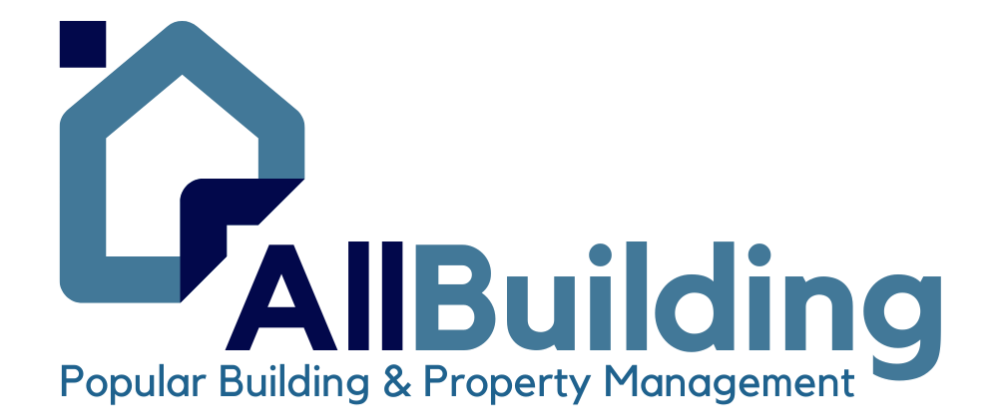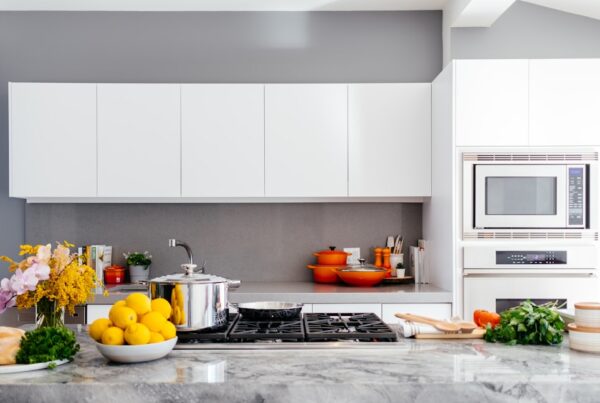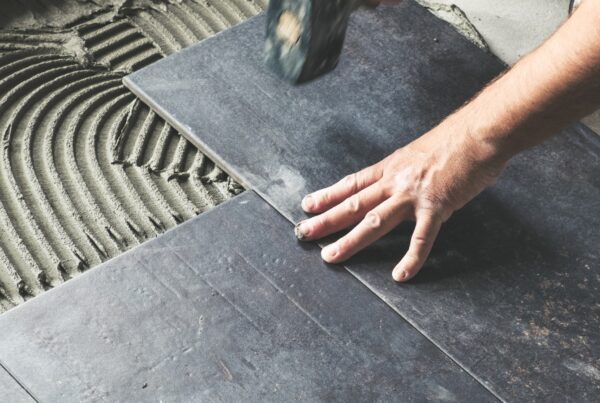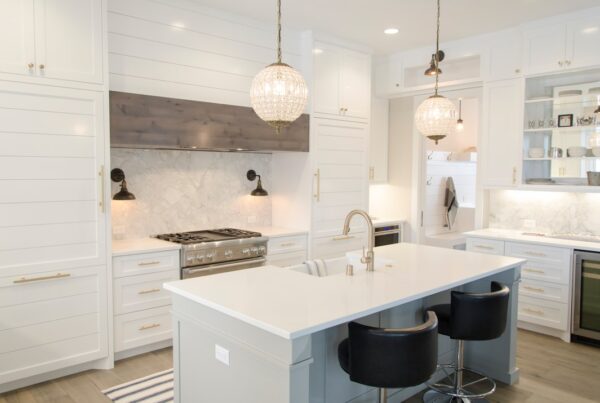Welcome to our comprehensive guide to kitchen installations in Brighton, where we’ll walk you through the entire process, from concept to completion. Whether you’re a homeowner, property developer, or simply looking to upgrade your kitchen, our guide has got you covered.
In this article, you’ll discover invaluable insights into designing your dream kitchen, finding the perfect materials and appliances, working with professional installers, and navigating the myriad of choices available in the industry. With our extensive experience and industry knowledge, we’ll provide you with expert tips and advice to help you make informed decisions and ensure a successful kitchen installation that meets your budget and exceeds your expectations.
Brighton is known for its vibrant culinary scene and unique blend of modern and traditional architecture. We understand the importance of creating a kitchen that not only reflects your personal style but also complements the aesthetics of your home and the surrounding environment. So, whether you’re looking for a sleek contemporary design or a rustic farmhouse feel, our guide will help you navigate the various design options and make the best choices for your kitchen installation in Brighton.
Get ready to embark on a journey towards your dream kitchen with our comprehensive guide. Let’s dive in!
Understanding the Importance of a Well-Designed Kitchen
A well-designed kitchen is the heart of any home. It’s a space where family and friends gather, meals are prepared, and memories are made. It’s important to prioritise functionality, aesthetics, and ergonomics when designing your kitchen. Consider factors such as the layout, storage options, lighting, and ease of movement.
When planning your kitchen installation in Brighton, take into account the size and shape of the space, as well as your specific needs and lifestyle. Think about how you use your kitchen and what features are essential for your daily activities. A well-designed kitchen can enhance your cooking experience, increase the value of your property, and bring joy to your everyday life.
Remember, a kitchen installation is a long-term investment, so it’s crucial to take the time to plan and design a space that suits your needs and preferences. Don’t hesitate to seek professional advice to ensure you make the most of your kitchen installation.
Types of Kitchen Installations Available in Brighton
In Brighton, you’ll find a wide range of kitchen installation options to suit every style and budget. From bespoke kitchens crafted by skilled artisans to ready-to-install modular units, the choices are endless. Here are some popular kitchen installation types in Brighton:
- Bespoke Kitchens: If you’re looking for a truly unique kitchen that is tailored to your specifications, a bespoke kitchen is the way to go. These kitchens are custom-made, allowing you to choose every aspect, from the layout and materials to the finishing touches. Bespoke kitchens offer the ultimate flexibility and can be designed to fit any space, no matter how unconventional.
- Modular Kitchens: Modular kitchens are pre-made units that come in various sizes and configurations. They are a popular choice for those looking for a cost-effective and efficient kitchen installation. With modular kitchens, you can mix and match different units to create a customised layout that suits your needs. These kitchens are easy to install and can be quickly assembled, making them a convenient option for busy homeowners.
- Semi-Custom Kitchens: Semi-custom kitchens offer a middle ground between bespoke and modular options. With semi-custom kitchens, you can choose from a range of pre-designed layouts and customise certain aspects, such as materials, colours, and finishes. This allows you to personalise your kitchen while keeping costs down.
No matter which type of kitchen installation you choose, it’s important to work with a reputable company that specializes in kitchen installations in Brighton. They will guide you through the process and ensure that your vision becomes a reality.
Factors to Consider Before Starting a Kitchen Installation Project
Before diving into a kitchen installation project in Brighton, there are several important factors to consider. These include:
- Budget: Determine your budget for the kitchen installation, taking into account the cost of materials, appliances, labor, and any additional expenses. It’s essential to strike a balance between your desired design and your budget to avoid any financial strain.
- Timeframe: Consider how long you can allocate for the kitchen installation project. Depending on the scope of work, the project may take anywhere from a few weeks to several months. Plan accordingly and communicate your timeline with your chosen kitchen installation company.
- Lifestyle and Needs: Think about your lifestyle and how you use your kitchen. Consider factors such as the number of people in your household, cooking habits, and storage requirements. This will help you design a kitchen that is both practical and functional.
- Aesthetics and Style: Determine the style and aesthetics you want to achieve in your kitchen. Do you prefer a modern, minimalist look or a more traditional and rustic feel? Collect inspiration from magazines, websites, and social media platforms to narrow down your preferences.
- Research and Inspiration: Take the time to research different kitchen designs, layouts, and materials. Look for inspiration online, visit showrooms, and consult with professionals to get a better understanding of what is possible within your budget and space constraints.
By considering these factors before starting your kitchen installation project, you’ll be better prepared to make informed decisions and create a kitchen that suits your needs and preferences.
Planning Your Kitchen Layout and Design
The layout and design of your kitchen play a crucial role in its functionality and overall appeal. A well-planned kitchen will make your daily tasks more efficient and enjoyable. Here are some key points to consider when planning your kitchen layout and design:
- Work Triangle: The work triangle consists of the three main work areas in the kitchen: the sink, the stove, and the refrigerator. These areas should be positioned in a way that allows for easy movement and efficient workflow. The total distance between the three points of the work triangle should ideally be between 12 and 26 feet.
- Storage Solutions: Adequate storage is essential in a well-designed kitchen. Consider the types of storage solutions that will best suit your needs, such as cabinets, drawers, and pantry units. Optimize storage space by utilising corner cabinets, pull-out shelves, and vertical storage solutions.
- Lighting: Proper lighting is crucial in a kitchen to ensure safety and functionality. Combine different types of lighting, such as ambient, task, and accent lighting, to create a well-lit and inviting space. Consider natural lighting options, such as skylights or large windows, to maximise the use of natural light during the day.
- Material Selection: Choose durable and easy-to-clean materials for your kitchen surfaces, such as countertops and flooring. Consider factors such as durability, maintenance requirements, and aesthetic appeal when selecting materials. Popular options include granite, quartz, hardwood, and ceramic tiles.
- Appliance Placement: Carefully plan the placement of your kitchen appliances to ensure convenience and efficiency. Consider factors such as ventilation, electrical outlets, and the proximity to the work triangle. Opt for energy-efficient appliances to reduce your environmental footprint and save on utility bills.
By paying close attention to the layout and design of your kitchen, you can create a space that is both functional and aesthetically pleasing.
Choosing the Right Materials and Appliances for Your Kitchen
Choosing the right materials and appliances for your kitchen is a crucial step in the installation process. The materials and appliances you select will not only impact the overall look of your kitchen but also its durability and functionality. Here are some factors to consider when making your selections:
- Countertops: Countertops are a focal point in any kitchen and should be both beautiful and durable. Popular options include granite, quartz, marble, and laminate. Consider factors such as maintenance requirements, heat resistance, and stain resistance when choosing your countertop material.
- Cabinets and Drawers: Cabinets and drawers are essential for storage and organisation in your kitchen. Consider the material, finish, and hardware options that best suit your style and budget. Popular choices include solid wood, MDF, and laminate. Soft-close hinges and drawer slides add a touch of luxury and convenience to your kitchen.
- Flooring: The flooring in your kitchen should be durable, easy to clean, and resistant to moisture. Popular options include ceramic tiles, hardwood, vinyl, and laminate. Consider factors such as comfort, slip resistance, and maintenance requirements when choosing your kitchen flooring.
- Appliances: Selecting the right appliances for your kitchen is crucial for both functionality and energy efficiency. Consider your cooking habits and lifestyle when choosing appliances such as refrigerators, ovens, cooktops, and dishwashers. Opt for energy-efficient models to save on utility bills and reduce your environmental impact.
- Fixtures and Finishes: Pay attention to the fixtures and finishes in your kitchen, such as faucets, sinks, and cabinet handles. These small details can make a big difference in the overall look and feel of your kitchen. Choose finishes that complement your chosen style, whether it’s sleek and modern or warm and rustic.
By carefully considering your material and appliance choices, you can create a kitchen that is beautiful, functional, and built to last.
Hiring a Professional Kitchen Installation Company in Brighton
Hiring a professional kitchen installation company in Brighton is key to ensuring a successful and stress-free project. Here are some tips to help you find the right company for your kitchen installation:
- Research and Recommendations: Start by researching local kitchen installation companies in Brighton. Look for companies with a proven track record and positive customer reviews. Ask friends, family, and neighbour’s for recommendations and personal experiences.
- Portfolio and Expertise: Review the portfolios of potential kitchen installation companies to get a sense of their expertise and style. Look for companies that have experience in the type of kitchen installation you desire. Ask for references and contact previous clients to inquire about their experience with the company.
- Licensing and Insurance: Verify that the kitchen installation company is properly licensed and insured. This will protect you from any liability in case of accidents or damages during the installation process. Ask for proof of insurance and licenses before hiring a company.
- Communication and Collaboration: A good kitchen installation company will have open and transparent communication with their clients. They should listen to your ideas, provide valuable input, and keep you informed throughout the project. Look for a company that values collaboration and prioritises customer satisfaction.
- Cost and Contracts: Obtain detailed quotes from multiple kitchen installation companies and compare them. Be wary of companies that provide significantly lower quotes, as they may compromise on the quality of materials or workmanship. Ensure that the contract includes all the necessary details, such as project timeline, payment schedule, and warranty information.
By taking the time to research and hire a professional kitchen installation company, you can feel confident that your project will be handled with expertise and professionalism.
Budgeting and Cost Considerations for Kitchen Installations
Budgeting is an essential part of any kitchen installation project. Before starting your project, it’s important to determine your budget and allocate funds accordingly. Here are some cost considerations to keep in mind:
- Materials: The cost of materials can vary significantly depending on the quality and type of materials you choose. Higher-end materials such as granite countertops and solid wood cabinets will typically be more expensive than their lower-end counterparts. Consider your budget and desired aesthetic when selecting materials.
- Appliances: Appliances can be a significant portion of your kitchen installation budget. Research different brands and models to find the right balance between quality and price. Consider energy-efficient appliances that can help you save on utility bills in the long run.
- Labor: Labor costs will depend on the scope of work and the complexity of your kitchen installation. Obtain multiple quotes from reputable kitchen installation companies to ensure you’re getting a fair price. Keep in mind that quality workmanship is worth the investment, as it ensures a durable and well-executed kitchen installation.
- Unexpected Expenses: It’s important to budget for unexpected expenses that may arise during the kitchen installation process. This includes unforeseen structural issues, plumbing or electrical repairs, or changes in design plans. Having a contingency fund of 10-15% of your total budget will help you cover any unexpected costs.
- Financing Options: If your budget is limited, consider exploring financing options such as personal loans or credit cards. However, be cautious with high-interest rates and carefully evaluate the terms and conditions before committing to any financing arrangement.
By carefully budgeting and considering cost factors, you can ensure that your kitchen installation project stays within your financial means.
Timeline and Project Management for Kitchen Installations
A well-planned timeline and efficient project management are crucial for a smooth kitchen installation process. Here are some tips to help you manage your kitchen installation project effectively:
- Create a Detailed Timeline: Work with your chosen kitchen installation company to create a detailed timeline for your project. This timeline should include important milestones, such as demolition, electrical and plumbing work, installation of cabinets and countertops, and final finishing touches. Having a clear timeline will help you stay organised and ensure that the project progresses smoothly.
- Communication is Key: Maintain open and frequent communication with your kitchen installation company throughout the project. Regularly check in to get updates on the progress and address any concerns or questions. Effective communication will help avoid misunderstandings and ensure that everyone is on the same page.
- Coordinate with Contractors: If your kitchen installation involves other contractors, such as electricians or plumbers, ensure that they are well-coordinated with the kitchen installation company. Clear communication and collaboration between all parties involved will help prevent delays and ensure a seamless installation process.
- Flexibility and Patience: Keep in mind that unexpected delays or challenges may arise during the kitchen installation process. Be prepared to be flexible and patient, as these issues are often beyond anyone’s control. Trust in the expertise of your kitchen installation company to overcome any obstacles and keep the project on track.
- Regular Inspections: Regularly inspect the progress of your kitchen installation to ensure that it meets your expectations. Address any concerns or issues promptly with your kitchen installation company. Taking a proactive approach to inspections will help identify and resolve any issues before they become major problems.
By effectively managing your kitchen installation project, you can ensure that it stays on schedule and meets your desired outcome.
